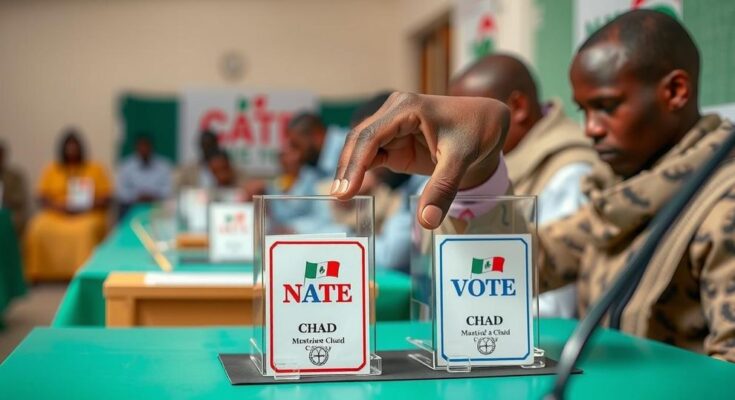Voting is underway in Chad’s first parliamentary election in 13 years amidst opposition boycotts and allegations of electoral fraud. The government has characterized these elections as a vital step towards democracy. Voter turnout appears low in urban areas, and concerns about the integrity of the electoral process continue to mount, particularly against a backdrop of regional instability.
Voting has commenced in Chad for the first parliamentary election in 13 years, an event characterized by significant political tension and opposition boycotts. Citizens will elect representatives for the parliament, provincial assemblies, and local councils amid allegations that the electoral process has been predetermined. The government has framed this election as vital for concluding military governance. Amidst skepticism, many voters, including youth and the economically disadvantaged, expressed hopes for transformative change although turnout appeared to be limited initially in urban centers, especially N’Djamena. Opposition parties have criticized the leadership, alleging systemic electoral fraud, while the ruling party insists that the elections signal a shift towards democracy. Security issues, particularly from militant groups such as Boko Haram, further complicate the electoral environment, amidst broader geopolitical implications involving former colonial ties with France and regional instability in Sudan.
Polling stations opened under the scrutiny of approximately 100 foreign observers as citizens navigated a political landscape marred by claims of rigged results and low voter engagement, particularly from the opposition bloc. Throughout the election process, there were reports of logistical challenges and missing ballots which have intensified concerns over the integrity of the electoral framework. Despite these factors, the government touts record turnout among military personnel and nomadic populations, emphasizing the election’s importance in addressing local challenges such as climate change and its impact on livelihoods.
Chad has been under military rule since the death of former President Idriss Déby in April 2021, when his son, Mahamat Idriss Déby Itno, assumed leadership. The current parliamentary election is intended to initiate a transition toward democratic governance after more than a decade of interruptions to democratic processes. This election is seen as a pivotal moment for a country striving to stabilize after years of internal strife and external pressures from regional conflicts, particularly with neighboring nations impacted by insurgency and political unrest. The opposition’s boycott and allegations of pre-determined outcomes add to the complex dynamics shaping Chad’s political future, wherein both governance and civil liberties remain contentious.
In summary, Chad’s parliamentary elections represent a significant event in a nation seeking to navigate a path away from military rule towards democracy. Despite official claims of high voter turnout and a historic political transition, opposition parties and numerous citizens remain skeptical of the legitimacy of the electoral process, prompting calls for boycotts and raising concerns over electoral fraud. With security challenges and internal divisions, the efficacy and integrity of these elections could fundamentally affect Chad’s trajectory in the coming years.
Original Source: www.aljazeera.com




